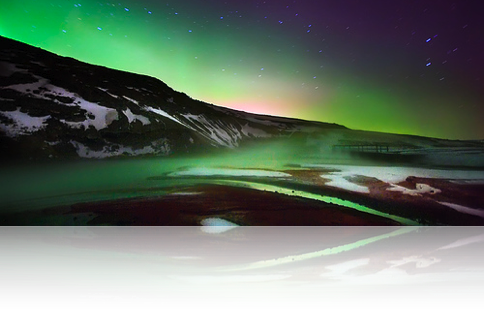
Policy

Energy to Spare
Iceland straddles a vast underwater volcanic mountain chain, thus supplying the Icelandic population with a virtually limitless supply of cheap renewable energy. Therefore, it is no great leap of the imagination to surmise that the Icelandic government exploits this environment for the good of its people.
While this is true, Iceland’s ambition extends well beyond its own well-being. In fact, Iceland plans to do her part to combat pollution and global warming by inviting corporations to establish permanent manufacturing facilities on the island.
It is estimated that 2% of the world’s energy is used simply to smelt Aluminum (Harris). That is a lot of carbon pollution infiltrating our atmosphere just to produce one metal. Iceland’s plan is to change that, in effect cleaning up heavy industry by ‘exporting’ their energy in the form of aluminum ingots.
According to Orkustofnun (http://www.os.is/page/english/), the Icelandic energy authority, 90% of all housing in Iceland is heated directly from geothermal sources, with the remaining being supplied by electricity derived from hydropower facilities and geothermal turbines. Yet only 20%-25% of all economically usable hydropower and 20% of geothermal resources have been harnessed.
While Iceland’s contributions in the form of cheap metals processing may seem to represent a potential goldmine of economic possibilities, certain environmentalist factions within Iceland disagree. In fact, activists in Iceland believe that they may fall victim to industrial overdevelopment and sacrifice a pristine landscape for the sake of profit. In essence, the old axiom applies: “Not in my back yard!”
It is the government’s job to balance these concerns. Iceland possesses abundant energy; that much is clear, but is there a more efficient means to export it? As Iceland looks outward and to the future, she must look to science to provide the methods and technology necessary to promote economic growth while simultaneously protecting the environment.
Photo by Helga Kvam, published by artcodes, San Francisco